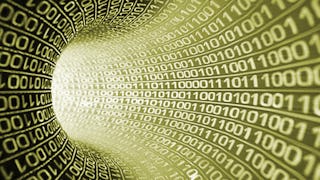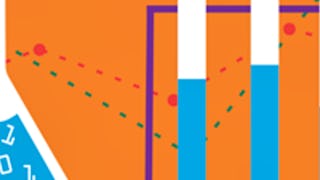In order to be successful in Data Science, you need to be skilled with using tools that Data Science professionals employ as part of their jobs. This course teaches you about the popular tools in Data Science and how to use them.



Tools for Data Science
This course is part of multiple programs.



Instructors: Aije Egwaikhide
Access provided by Indian Institute of Technology Delhi
566,119 already enrolled
(30,126 reviews)
Recommended experience
What you'll learn
Describe the Data Scientist’s tool kit which includes: Libraries & Packages, Data sets, Machine learning models, and Big Data tools
Utilize languages commonly used by data scientists like Python, R, and SQL
Demonstrate working knowledge of tools such as Jupyter notebooks and RStudio and utilize their various features
Create and manage source code for data science using Git repositories and GitHub.
Skills you'll gain
- Version Control
- IBM Cloud
- Computer Programming Tools
- Jupyter
- Cloud Computing
- Git (Version Control System)
- Machine Learning
- GitHub
- Data Visualization Software
- R Programming
- Python Programming
- R (Software)
- Other Programming Languages
- Statistical Programming
- Big Data
- Open Source Technology
- Data Science
- Query Languages
- Development Environment
Details to know

Add to your LinkedIn profile
13 assignments
See how employees at top companies are mastering in-demand skills

Build your subject-matter expertise
- Learn new concepts from industry experts
- Gain a foundational understanding of a subject or tool
- Develop job-relevant skills with hands-on projects
- Earn a shareable career certificate

There are 7 modules in this course
In this module, you will learn about the different types and categories of tools that data scientists use and popular examples of each. You will also become familiar with Open Source, Cloud-based, and Commercial options for data science tools.
What's included
6 videos4 readings2 assignments2 plugins
For users who are just starting on their data science journey, the range of programming languages can be overwhelming. So, which language should you learn first? This module will bring awareness about the criteria that would determine which language you should learn. You will learn the benefits of Python, R, SQL, and other common languages such as Java, Scala, C++, JavaScript, and Julia. You will explore how you can use these languages in Data Science. You will also look at some sites to locate more information about the languages.
What's included
5 videos1 reading2 assignments
In this module, you will learn about the various libraries in data science. In addition, you will understand an API in relation to REST request and response. Further, in the module, you will explore open data sets on the Data Asset eXchange. Finally, you will learn how to use a machine learning model to solve a problem and navigate the Model Asset eXchange.
What's included
5 videos1 reading2 assignments2 plugins
With the advancement of digital data, Jupyter Notebook allows a Data Scientist to record their data experiments and results that others can reuse. This module introduces the Jupyter Notebook and Jupyter Lab. You will learn how to work with different kernels in a Notebook session and about the basic Jupyter architecture. In addition, you will identify the tools in an Anaconda Jupyter environment. Finally, the module gives an overview of cloud based Jupyter environments and their data science features.
What's included
6 videos1 reading2 assignments3 app items2 plugins
R is a statistical programming language and is a powerful tool for data processing and manipulation. This module will start with an introduction to R and RStudio. You will learn about the different R visualization packages and how to create visual charts using the plot function. In addition, Distributed Version Control Systems (DVCS) have become critical tools in software development and key enablers for social and collaborative coding. While there are many distributed versioning systems, Git is amongst the most popular ones. Further in the module, you will develop the essential conceptual and hands-on skills to work with Git and GitHub. You will start with an overview of Git and GitHub, followed by creation of a GitHub account and a project repository, adding files to it, and committing your changes using the web interface. Next, you will become familiar with Git workflows involving branches and pull requests (PRs) and merges. You will also complete a project at the end to apply and demonstrate your newly acquired skills.
What's included
7 videos2 readings3 assignments5 app items3 plugins
In this module, you will work on a final project to demonstrate some of the skills learned in the course. You will also be tested on your knowledge of various components and tools in a Data Scientist's toolkit learned in the previous modules.
What's included
1 assignment1 peer review1 app item1 plugin
Watson Studio is a collaborative platform for the data science community and is used by Data Analysts, Data Scientists, Data Engineers, Developers, and Data Stewards to analyze data and construct models. In this module, you will learn about Watson Studio and IBM Cloud Pak for data as a service. Then you will create an IBM Watson Studio service and a project in Watson Studio. After creating the project, you will create a Jupyter notebook and load a data file. You will also explore the different templates and kernels in a Jupyter notebook. Finally, you will connect your Watson Studio account to GitHub and publish the notebook in GitHub. Note: This part of the course is optional and is not a mandatory requirement to complete the lab provided in this week of the course.
What's included
5 videos2 readings1 assignment1 app item3 plugins
Earn a career certificate
Add this credential to your LinkedIn profile, resume, or CV. Share it on social media and in your performance review.
Instructors



Offered by
Why people choose Coursera for their career




Learner reviews
30,126 reviews
- 5 stars
67.91%
- 4 stars
21.66%
- 3 stars
6.41%
- 2 stars
2.06%
- 1 star
1.94%
Showing 3 of 30126
Reviewed on Aug 29, 2020
This course is awsum and well explained. Some portions needs to be updated based on the current platforms. i.e Lab instructions should be inline with the current screen, e.g. Watson Studio.Thanks !
Reviewed on Oct 15, 2024
Good Course overall focus in basic tools. the course could be shorter as someone who know which language who want to use and familir with the tools already shouldn't learn all the course materials
Reviewed on May 19, 2023
The course is overwhelming for a beginner with no experiecne of programming. The examples given in the class seem difficult and should have been of a lower difficulty level to keep the hopes high.
Explore more from Data Science
 Status: AI skills
Status: AI skills
Fractal Analytics

Wesleyan University


